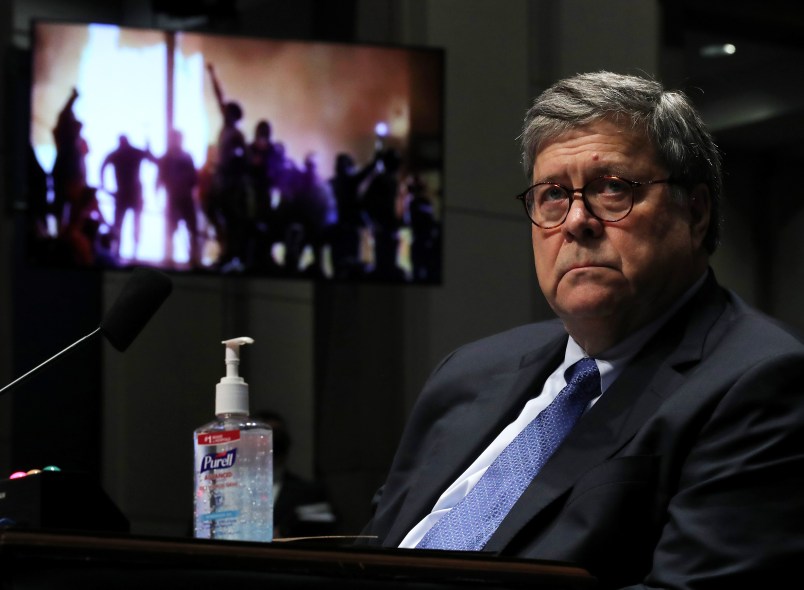A federal judge blocked the Justice Department from intervening to protect President Trump from a lawsuit accusing him of rape, according to a Tuesday decision, and denied a request to substitute the U.S. in place of Trump in the suit.
Writer E. Jean Carroll sued President Trump over alleged defamation stemming from her claim that President Trump raped her in the mid-1990s. The Justice Department later sought to defend Trump in the personal lawsuit, saying that Trump had been “acting within the scope of his office or employment at the time of the incident out of which the claim arose.”
The highly unusual move by the government would have both shifted the financial burden of the case to the taxpayers, and protected Trump from having to go through a potentially embarrassing disclosure process amid his reelection campaign. At the time, Carroll’s lawyer Roberta Kaplan called the DOJ’s intervention “shocking” and “without precedent.”
The move also engendered outcry from observers. “In and of itself, it ought to shock the conscience of all Americans who care about the Department of Justice’s essential role as an independent arbiter of the rule of law,” said David Laufman, a former senior DOJ official during the Bush and Obama administrations. Democratic lawmakers joined in the chorus, Sen. Mark Warner (D-VA) accusing Attorney General Bill Barr of “acting as the President’s personal lawyer.”
The DOJ is arguing that since Trump made the comments denying her accusations — considered defamatory by Carroll, and at the heart of her lawsuit — as President, it should not be Trump as a private individual being sued, but Trump as an employee of the federal government. DOJ lawyers compared the situation to a mail deliverer causing a car accident on the job.
Judge Lewis Kaplan rejected that argument, citing the Federal Tort Claims Act and the Westfall Act. The FTCA allows for damages claims for negligence, and other “civil wrongs” committed by government employees in the course of their work — the postal worker is a textbook example.
Here, he said, the FTCA protections don’t apply. He homed in on the two fundamental questions: is Trump an “employee of the government?” And did his comments about Carroll’s accusations fall under the scope of his employment? To both questions, Kaplan said no.
Citing multiple laws and other court cases, Kaplan found that Trump could not be considered an “employee” of the government and, further, that he probably wouldn’t want to be because it would open him up to all manner of lawsuits.
“Holding that the president is an ‘employee of the Government’ within the meaning of the [Westfall] Act could ignite a significant expansion of federal tort exposure – without any evidence of a congressional intent to do so – by authorizing lawsuits that could involve review of the president’s job performance,” Kaplan wrote.
After dispensing with the government’s first argument, Kaplan dug into the question of whether Trump’s comments disavowing Carroll’s accusations would fall under the scope of his “employment.”
“While commenting on the operation of government is part of the regular business of the United States, commenting on sexual assault allegations unrelated to the operation of government is not,” he wrote.
Trump made the comments at the heart of the case during the summer of 2019, after Carroll wrote an article for New York Magazine about “hideous men” in her life, including Trump. She relayed her allegation that Trump raped her in a Manhattan Bergdorf Goodman department store.
Among his disavowals was his infamous “she’s not my type” jab, along with protestations that he’d never even met her, despite the existence of photographs of both of them.
Trump has been accused of sexual misconduct and assault by dozens of women, though he’s denied all of the accusations.
This post has been updated.
Read the decision here:



